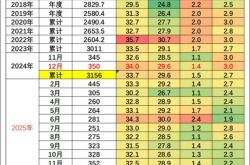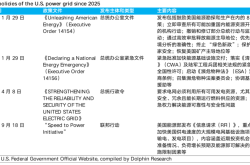Li Xiang, who happily bought a Ferrari, founded AutoHome and was targeted by Haier?
![]() 11/22 2024
11/22 2024
![]() 674
674

Produced by Leida Finance | Written by Meng Shuai | Edited by Deep Sea
As one of China's three major automotive vertical portals, AutoHome is about to welcome a new "owner"?
Recently, there has been much talk about Haier's plan to acquire AutoHome. Although Haier Group has not commented on the acquisition of AutoHome, Leida Finance has combed through public information and found that Haier has had a certain layout in the automotive industry in recent years.
Looking back at AutoHome's entrepreneurial journey, its founder, the renowned Li Xiang in the new energy vehicle field, must be mentioned. Long before founding AutoHome and Li Auto, Li Xiang was already a well-known entrepreneur in the IT industry. Relying on his deep interest in computers, he created the GPU-Z website during high school, which was later renamed PCPOP, marking the beginning of his entrepreneurial career.
In 2004, when PCPOP's development hit a bottleneck, Li Xiang decided to explore a new entrepreneurial direction, and thus AutoHome was born. Under the joint efforts of Li Xiang and his entrepreneurial partners, AutoHome rose rapidly, and its website traffic soon reached the top position in the industry, successfully listing on the New York Stock Exchange in 2013, achieving a magnificent transformation.
However, the relationship between AutoHome and its founder Li Xiang has gradually drifted apart. Throughout AutoHome's development, its shareholding structure has undergone several major adjustments. In 2008, Telstra became the company's largest shareholder. In 2016, the original major shareholder Telstra prepared to exit, triggering a fierce battle between the company's management and Ping An Insurance at that time. Ultimately, Ping An Insurance defeated the management and successfully gained control of AutoHome.
Amidst rumors of the "sale" this time, AutoHome is not only facing challenges from competitors such as Autohome and Yiche, but also needs to confront the severe test of waning interest in automotive vertical platforms. In recent years, AutoHome's revenue and net profit have not been optimistic, and the revenue scale of its media business, once a crucial pillar, has also continued to shrink. Regardless of who ultimately gains control, AutoHome's future path remains challenging.
Is AutoHome planning to "sell" to Haier?
On November 19, a netizen encountered Li Xiang, the founder of Li Auto, at a vehicle management office in Beijing and happened to see him handling the registration procedures for his newly purchased Ferrari 296 GTS. As Li Xiang takes possession of his new car, rumors of a change of ownership have once again emerged for AutoHome, which he once painstakingly built.
According to an announcement by the automotive self-media "HongParty" on November 20, the previously circulated news that Haier Group planned to acquire AutoHome has been confirmed. If there are no unexpected developments, Haier is expected to officially announce this news soon.
HongParty" also mentioned in the article that sources claim Haier will acquire a portion of AutoHome's equity with a certain amount of funds to achieve control rather than acquiring only a specific business segment, as previously rumored. After completing the acquisition, Haier also plans to conduct layoffs at AutoHome with an estimated proportion of about 30% in January next year.
The report also stated that insiders from AutoHome revealed that the company has started implementing a monthly layoff plan since the fourth quarter of this year. It is expected that by the end of this year, Haier's relevant team will officially enter AutoHome. At that time, not only will the new retail business be integrated into the new team, but there will also be significant adjustments to senior management personnel. Rumors suggest that AutoHome is actively searching for a new CEO.
Moreover, HongParty's article also mentioned that the acquisition was partly due to Haier encountering growth "hurdles" in the home appliance field and AutoHome's declining business performance in recent years. Leida Finance noticed that HongParty has deleted the above article on some media platforms, but the article on the Weibo platform has not been deleted.
According to another report by Lanjing News, Haier Group stated that it would not comment on market rumors regarding its acquisition of AutoHome. However, sources close to AutoHome revealed to them that Haier may acquire some departments of AutoHome.
Although Haier Group has not confirmed the acquisition of AutoHome to the outside world this time, it has actually had a certain layout in the automotive field before. As early as 2015, Haier's open platform HOPE had cooperated with automotive parts technology company Faurecia.
In 2017, Haier established its industrial internet brand COSMOPLAT, whose service targets include the automotive industry, providing new energy battery management solutions, new energy module PACK line solutions, etc.
In 2020, Haier Group also invested in Shanghai PATEO as a strategic investor. According to incomplete statistics, Haier Capital has currently invested in multiple enterprises in the automotive ecosystem, including Feichi Magnesium (automotive internet technology company), Saihe Intelligence (automotive monitoring equipment manufacturer), and Tongming High-Tech (automotive parts manufacturer).
In 2021, Haier successively signed cooperation strategic agreements with automakers such as SAIC Motor, Geely Automobile, and Chery Automobile, further deepening its involvement in the automotive ecosystem. In August 2022, rumors about Haier building cars once attracted widespread attention from the outside world. Some media outlets claimed that Haier Group was planning to build cars, intending to enter the vehicle manufacturing field and launch its own branded automotive products through the OEM route.
However, Haier quickly denied these rumors and stated that the Haier Group is currently relying on its COSMOPLAT industrial internet platform to jointly build sub-platforms in the automotive field with relevant automotive enterprises, aiming to enable the digital transformation of automotive industry chain enterprises. At the same time, the company will leverage the technological and scenario advantages of smart homes to jointly establish a new home-car interconnection ecosystem with automotive enterprises, providing consumers with a better life experience.
Leida Finance learned from the official website that Haier, founded in 1984, has currently deployed in three major sectors: smart living, great health, and industrial internet. Katachi is the platform created by Haier Group in the industrial internet sector to empower the automotive industry. Tianyancha shows that Qingdao Katachi Automotive Technology Development Co., Ltd. was officially established in November 2022.
In July of this year, the Katachi Smart Interactive Mall was officially launched, becoming the country's first self-operated mall for used cars. It is reported that Katachi currently mainly provides users with services including certified used car lifecycle usage scenario solutions, personalized automotive customization solutions, new energy smart charging solutions, and more.
At this year's National People's Congress and Chinese People's Political Consultative Conference, Zhou Yunjie, Chairman and CEO of Haier Group, suggested that it is necessary to not only build a nationwide automotive lifecycle data platform that aggregates full-process information from manufacturing to recycling and reuse but also actively create a used car remanufacturing industrial system, establish a standard system and regulatory mechanism, promote the standardization of used cars, improve industry integrity, enhance user recognition, and thereby drive the high-quality development of the entire used car industry chain.
Some analysts believe that if Haier Group successfully acquires AutoHome, it will help it further expand its layout in the automotive industry. As a well-known media and service platform in the automotive industry, AutoHome holds a large number of automotive manufacturer, dealer, and user resources. By acquiring AutoHome, Haier can further access these resources, providing more cooperation opportunities and market space for the development of its own automotive business.
At the same time, Haier can also take this opportunity to explore innovative models combining home appliance products with automotive services. By integrating AutoHome's platform advantages with Haier's own home appliance product advantages, Haier can further explore how to provide users with a more comprehensive and convenient smart travel solution.
The Birth of AutoHome
As one of the "Big Three" domestic automotive portals, AutoHome's development history can be traced back about two decades, and its founder is none other than Li Xiang, who is now thriving in the new energy vehicle sector as the founder of Li Auto.
Before founding AutoHome and Li Auto, Li Xiang was already a well-known entrepreneur, and his entrepreneurial journey began with a deep interest in the IT industry. In an era when the internet was far less prevalent than it is now, Li Xiang developed a strong interest in computers when he first came into contact with them.
However, due to the financial constraints of his family at that time, Li Xiang could only learn computer knowledge independently by purchasing computer newspapers and magazines. As his in-depth study and understanding of computer knowledge progressed, Li Xiang's desire to own a computer became increasingly strong. Finally, as he grew older, Li Xiang finally welcomed his first personal computer.
With his first computer, Li Xiang's understanding of the IT industry was no longer limited to theoretical discussions. By contributing articles to IT media, he was already able to earn manuscript fees with his own abilities before entering society.
In the late 1990s, while still in high school, Li Xiang designed a website focused on graphics card analysis and named it "GPU-Z." Due to his academic responsibilities, to ensure that the website was updated before class, Li Xiang had to get up at 4 a.m. every morning to write articles. At that time, relying on the website's advertising revenue, Li Xiang was already able to earn a considerable income far exceeding his parents' salaries.
Due to his love and optimism for the internet and IT industry, Li Xiang, who was in a crucial period of his studies, even made a bold decision to abandon the college entrance examination and devote himself to entrepreneurship. When recalling this experience, Li Xiang's father still vividly remembers his son's words, "The internet is a growth market with limitless potential. If I don't seize it now, by the time I finish my four years of college, it will have already been taken by others." Ultimately, Li Xiang's decision received the support of his parents.
After the millennium, the website founded by Li Xiang, "GPU-Z," was renamed "PCPOP." When most of his high school classmates were still in college, the young Li Xiang had already transformed into the CEO of PCPOP. In the second half of 2001, Li Xiang moved from Shijiazhuang to Beijing to officially start the commercial operation of PCPOP.
Relying on his deep passion for IT products and snowball-like capital accumulation, Li Xiang, with only a high school education, led PCPOP to continuous growth, making it an influential IT-related online service platform in China's internet industry. By 2004, PCPOP had an annual income of over 20 million yuan.
However, due to the bottleneck in PCPOP's development, Li Xiang discussed with his partners to find a new industry to venture into while PCPOP was still profitable. Therefore, Li Xiang initiated preparations for a new entrepreneurial project in 2004, and this new project was AutoHome, which is now caught up in rumors of a "sale."
At that time, China's automotive market was in a period of rapid development. Li Xiang, with his keen insight, captured the prospects of the automotive industry and the huge business opportunities behind it, so he decided to create a comprehensive automotive website integrating automotive information, model data, and user interaction.
It is worth mentioning that in March 2003, just before this, Li Xiang had just obtained his driver's license. The day after receiving his license, Li Xiang went to buy his first car, a Volkswagen Polo 1.4MT with four headlights.
In 2005, AutoHome was officially launched. However, there were over a hundred automotive websites on the market at that time, and competition was fierce. Without any promotional expenses, AutoHome quickly stood out due to its neutral and objective content, high-frequency update schedule, and innovations in databases, real photos, and other aspects. In less than a year, AutoHome's traffic volume had risen to the forefront of domestic automotive websites.
By 2008, AutoHome's traffic volume had reached the top in the industry. By the end of 2012, AutoHome had achieved the feat of covering 80 million monthly users. In 2013, AutoHome made significant progress on the capital operation front, officially ringing the bell for its listing on the New York Stock Exchange. On the first day of listing, AutoHome's market value exceeded $3 billion.
Behind the rumors of a "change of ownership," AutoHome's performance is under pressure
Although Li Xiang is the founder of AutoHome, the relationship between AutoHome and Li Xiang has become increasingly distant. Leida Finance combed through and found that before the rumors of being acquired by Haier emerged this time, AutoHome's shareholding structure had undergone several major adjustments.
The clock is turned back to June 2008 when Telstra, Australia's largest telecommunications group, acquired a 55% stake in Haochen Media and PCPOP. Among them, Haochen Media owned IT168 and Che168 websites, while PCPOP owned PCPOP and AutoHome websites.
At that time, Telstra CEO Sol Trujillo stated, "This acquisition is part of the company's expansion strategy in media and communications in Australia and globally. Telstra now has controlling stakes in three vertical websites in different fields in China, covering real estate, automobiles, and digital products. These acquisitions in China have brought us opportunities for faster growth."
With the completion of this transaction, Haochen Media and PCPOP were integrated, and Telstra became the company's largest shareholder. Li Xiang revealed in an interview that he had also considered a separate listing plan, but the capital market situation at that time made him take a wait-and-see attitude.
In Li Xiang's view, Telstra's experience in various fields would bring strategic prospects to the company, including leading technology and sales, brand building, etc. He admitted that Telstra's holding would allow him to focus on the product itself without any worries.
In August 2012, Shengtuo Media was split into two independent companies according to the two business lines of automobiles and IT. Specifically, AutoHome and Erche.com in the automotive field were combined into one company named AutoHome, while PCPOP and IT168 in the IT field continued to use the name Shengtuo Media.
A year later, AutoHome successfully listed on the New York Stock Exchange. However, news of Li Xiang's resignation emerged on the first day of listing. The reason for such rumors may be that after multiple capital disintegrations, Li Xiang's shareholding ratio in AutoHome had fallen below 5%. According to the prospectus disclosed by AutoHome, after the IPO, Li Xiang, as the founder and president, held 4.9% of the shares, while Qin Zhi, the CEO, held 3%.
At the 10th-anniversary ceremony of AutoHome held in 2015, Li Xiang fondly recalled the journey of AutoHome from its inception to prominence and exclaimed, "Whenever I recall the stage of AutoHome going from 0 to 1, I feel that it was truly wonderful."
However, Li Xiang eventually drifted further and further away from AutoHome. In June 2015, AutoHome announced that founder Li Xiang would no longer serve as president but would continue to play a role in important matters such as the company's strategic planning as a director and shareholder of AutoHome.
Regarding Li Xiang's departure, rumors once circulated online that he had been "kicked out" of AutoHome. Years later, he personally debunked the rumors on Weibo, "Many people believe that I was expelled from AutoHome and repeatedly attacked me with this accusation. I will not take the blame for this stain."
Li Xiang stated that in 2011, he wanted to leave AutoHome to start a new business, so he shared his thoughts with Qin Zhi, but Qin Zhi said they must increase AutoHome's market value to over $5 billion before letting him go. Therefore, Li Xiang stayed and subsequently increased the company's market value to over $5 billion. In June 2015, Li Xiang ultimately left AutoHome and later founded Chehejia (now Li Auto).
However, after Li Xiang gradually faded out of AutoHome, the company welcomed a new owner. In 2016, Telstra began seeking to transfer control of AutoHome, and both the company's management and Ping An Insurance were interested in the acquisition. Ultimately, Ping An Insurance won the battle for equity and gained control of the company. As of the end of 2023, Ping An Insurance held a 44.13% stake in the company through its subsidiary Yun Chen Capital Cayman.
While the news of "selling out" emerged, Autohome still faces many challenges at present. For example, Autohome cannot avoid competing with Didi Chuxing and Yiche, the other two major vertical automotive media platforms, both of which are backed by two social media giants, ByteDance and Tencent, respectively, giving them a unique advantage in traffic acquisition.
Another unavoidable reality for Autohome is that the popularity of automotive vertical platforms in the market is gradually waning. With the booming development of social media and the "decentralization" trend of automobile-related information, the dependence of the automotive industry on vertical automotive media is continuously decreasing. Earlier this year, there were rumors in the market that Huawei AITO had ceased cooperation with the three major vertical automotive media platforms.
Amidst numerous challenges, Autohome's performance also shows signs of weakness. By combing through Autohome's financial reports, Radar Finance found that the company's revenue has declined for several consecutive years in recent years, falling from 8.659 billion yuan in 2020 to 6.941 billion yuan in 2022. Last year, Autohome's revenue rebounded slightly by 3.51% to reach 7.184 billion yuan, but by the first three quarters of 2024, it declined again by 0.31%.
Similarly, the situation is not optimistic when it comes to Autohome's net profit indicators. In 2021 and 2022, Autohome's net profit attributable to shareholders fell by 36.9% and 15.89% year-on-year, respectively. After a slight rebound of 4.03% last year, Autohome's net profit attributable to shareholders declined again by 9.17% in the first three quarters of this year.
It is worth noting that media services, once an important pillar of Autohome's revenue, have also seen a continuous decline in revenue scale in recent years. According to iFind from iFinD, in 2018, media services contributed 3.508 billion yuan in revenue to Autohome, accounting for nearly half of the total; however, in the first half of this year, the proportion of revenue contributed by media services to Autohome has dropped to 21.84%.
Will Autohome eventually "marry" Haier as rumored? Radar Finance will continue to pay close attention.







